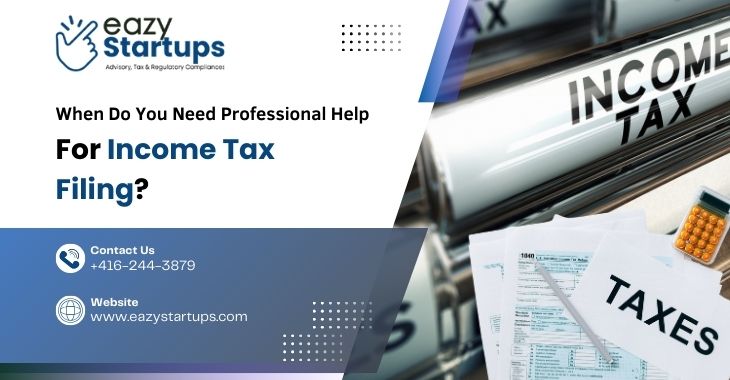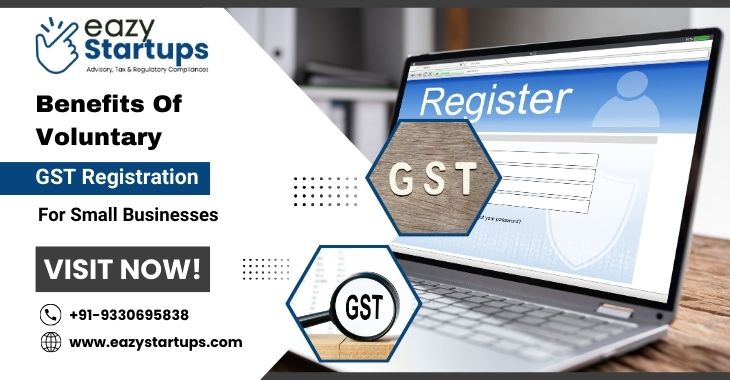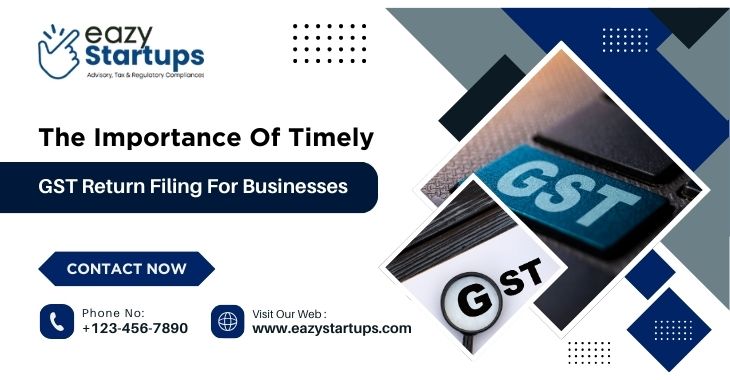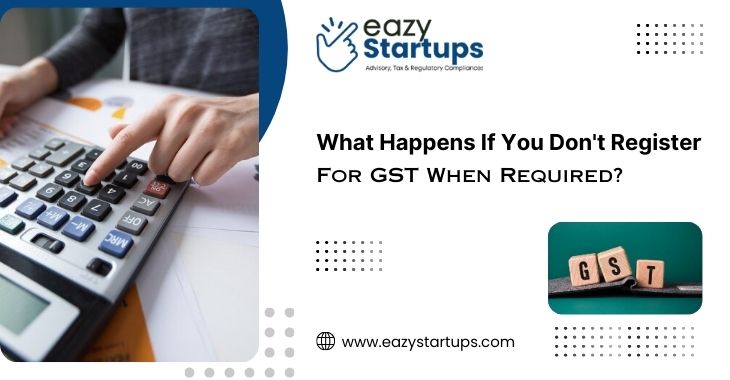When your finances are clear-cut, filing your income taxes may seem easy enough. However, taxes usually follow as life and money become more complicated. The following are typical situations where seeking expert tax assistance could benefit. Before diving into the detailed discussion of this topic, if you are looking for the best place to get professional help with the Income Tax Filing or Income Tax Return Filing process, reach out to Eazy Startups, India.
Now, let’s have a look at the detailed discussion:-
1. Your Financial Situation is Complex
2. You’re Self-Employed or Run a Small Business
3. You’ve Experienced a Major Life Event
4. You Have Investment Income
5. You’re Managing International Finances
6. You Received a Tax Notice or Audit Request
7. You Value Your Time and Peace of Mind
Your Financial Situation is Complex:
Filing taxes might be difficult if you have several sources of income, such as investment properties, retirement money, or freelancing. Every income source has its own set of regulations and possible deductions. A tax expert is adept at handling these nuances, guaranteeing that your filing is correct and that you aren’t losing out on tax benefits.
You’re Self-Employed or Run a Small Business:
Being self-employed or owning a business entails additional tax obligations. You can claim travel, office space, equipment, and business costs deductions. However, it can be very difficult to remember all of these facts. To avoid fines and ensure you’re optimizing your tax savings, a tax expert may assist you in comprehending the various deductions and ensure you fulfil any quarterly projected tax obligations.
You’ve Experienced a Major Life Event:
Life changes frequently impact your taxes. There are new filing considerations, such as whether you get married, have a child, buy a house, or divorce. New credits, deductions, or filing statuses may become available due to any of these circumstances. Through these adjustments, a professional can help you maximize your tax return and make sure you don’t overlook any additional benefits that might be available to you.
You Have Investment Income:
Although they have additional tax responsibilities, investments are a fantastic method to increase wealth. Every investment, including stocks, mutual funds, and rental properties, has its tax regulations. For example, capital losses may partially offset your taxable income, and short-term and long-term capital gains are taxed differently. Because they understand these subtleties, tax experts can help you make sense of everything and maybe save you money.
You’re Managing International Finances:
During Income Tax Filing, you must record overseas-sourced income, foreign assets, and business operations. Penalties may result from incorrectly reporting foreign income, which adds complexity. You may fulfil your filing requirements and steer clear of any compliance problems with the assistance of a tax expert with knowledge of international income and asset reporting.
You Received a Tax Notice or Audit Request:
Receiving an audit request might be frightening. Some notices might need more details, but many are only requests for clarification. A tax expert can be a great ally, helping you react, clarifying the meaning of the notice, and, if necessary, representing you in an audit. Having an expert on your side can reduce your anxiety and guarantee that you receive fair treatment.
You Value Your Time and Peace of Mind:
Saving time and lowering stress can occasionally be the main justifications for getting professional assistance. Filing taxes can take time and be unpleasant, even if your situation isn’t too complicated. Hiring a tax professional lets you concentrate on other important tasks, knowing that your taxes will be processed correctly and quickly.
Final Thoughts
Professionals can be a smart choice. They can simplify the process, help you claim deductions you may not know, and ensure you’re filing correctly—saving you both time and stress. Contact Eazy Startups, India, for getting professional help with Income Tax Filing. Visit our website for more details.







Recent Comments